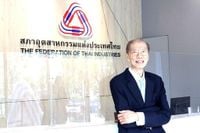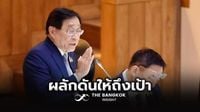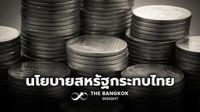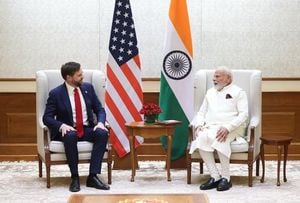In a recent address, Mr. Pichai Chunhawachira, the Deputy Prime Minister and Minister of Finance of Thailand, responded to criticisms from Ms. Sirikanya Tansakul, a member of the House of Representatives, regarding the state of the Thai economy. Tansakul's remarks suggested a bleak outlook for the economy, prompting Pichai to emphasize the importance of maintaining hope despite challenges. He acknowledged that the economy has struggled, growing only 1.9% for an extended period, but he expressed confidence that the government could achieve a 3% GDP growth target.
Pichai pointed out that in the past six months, the economy has seen a growth rate of 3.1%. He highlighted the potential for agricultural exports, particularly rice, which has seen significant demand abroad. Despite the challenges faced, Thailand has produced 17 million tons of rice, with 11 million tons consumed domestically and 6 million tons earmarked for export. However, he noted that the government aims to reduce rice cultivation to enhance profitability, suggesting that farmers should consider planting alternative crops instead.
In his remarks, Pichai also addressed the importance of restructuring the agricultural sector to improve yields and profitability. He proposed that farmers could potentially earn between 15,000 and 16,000 baht per rai by diversifying their crops. He mentioned that the government needs to allocate land more effectively, reducing rice cultivation by 14 million rai while increasing the cultivation of other crops by 12 million rai.
Turning to the automotive industry, Pichai acknowledged the challenges posed by rising global competition and the need for Thailand to adapt. He emphasized the government's commitment to promoting electric vehicles and hybrid cars, particularly in the pickup truck segment. Pichai indicated that infrastructure improvements are crucial for economic growth, particularly in transport logistics, to reduce costs and enhance efficiency.
Tourism remains a significant driver of Thailand's economy, with Pichai reporting that the country welcomed approximately 35.5 million tourists, including 3 million for medical tourism. He recognized that while international tourism numbers have declined, domestic tourism has shown resilience, with a year-on-year increase of 3.5% in the number of Thai visitors.
On the economic front, Mr. Pornchai Theeravet, Director-General of the Fiscal Policy Office, provided insights into the state of the Thai economy as of February 2025. He noted that the economy received a boost from exports, which increased for the eighth consecutive month, rising by 14% in dollar terms to reach 26.7 billion USD. The increase was driven by strong demand for jewelry, computers, and machinery, among other goods.
Despite the positive export figures, Pornchai cautioned that the tourism sector continues to face challenges, particularly due to a decline in international visitors. He highlighted that while domestic tourism is thriving, attracting 23 million local tourists, the number of foreign visitors decreased by 6.9% compared to the previous year.
Pornchai also expressed concern about consumer confidence, which has dipped to 57.8, down from 59.0 in the previous month. This decline reflects growing worries about the sluggish pace of economic recovery. He noted that while private consumption remains stable, investment in machinery and commercial vehicles has shown signs of slowing down.
In terms of inflation, the general rate stood at 1.08% in February, with core inflation at 0.99%. The public debt ratio was reported at 64.1% of GDP, remaining within the fiscal discipline guidelines set by the government. The external stability of the economy appears solid, with foreign reserves holding steady at approximately 244.8 billion USD.
Looking ahead, both Pichai and Pornchai emphasized the need to monitor global economic conditions closely, particularly U.S. economic policies that could impact Thailand. The ongoing geopolitical tensions and trade restrictions from the U.S. are areas of concern that require vigilance.
In conclusion, while the Thai economy faces several challenges, including sluggish growth and international competition, government officials remain optimistic about the potential for recovery through strategic initiatives in agriculture, tourism, and automotive sectors. The focus on diversifying exports and improving infrastructure could be key to navigating the current economic landscape.








